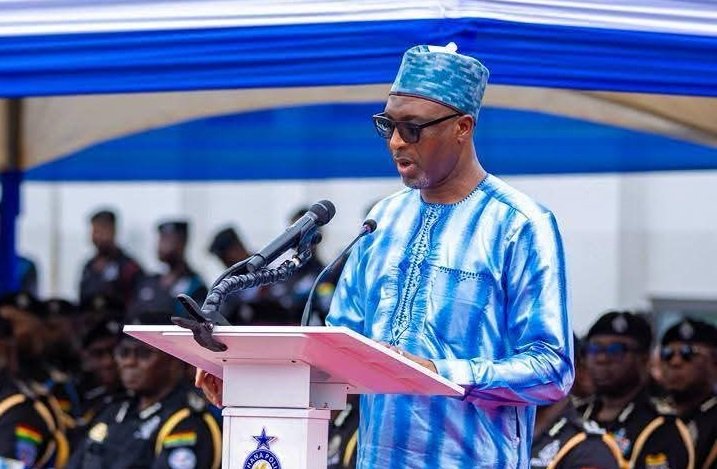News
‘Private school education in Ghana likely to face problems’

The Acting National President of the Ghana Association of Private Schools (GAPS), Mr Domastus Tuurosong , said private school education in the country was likely to face serious problems if urgent steps were not taken to support their administrative operations.
Speaking in an interview with The Spectator, he said it would be extremely difficult for private schools to operate at half capacity class- sizes to help curtail further spread of the COVID-19 pandemic.
He explained that such a situation demanded that more teachers were employed to assist, but was quick to ask,” How will the school authorities generate enough money to pay the salaries of the additional staff?”
He lamented that unlike corporations which had commenced operations when some lockdown restrictions were relaxed, schools remained closed until recently when the final-year students were required to resume classes pending their examinations, a situation where school fees would not be paid.
” We are confronted with the problem of how to generate funds to pay the salaries of teachers who are preparing the final-year students ,” he said.
Mr Tuurosong said though the schools were provided with Personal Protective Equipment (PPE), these items which were used frequently could not last, and the schools had to supplement.
He also lamented that private schools could not afford the construction of fence walls around their premises to prevent unauthorised persons from intruding their premises to prevent the spread of COVID-19.
Mr Tuurosong has appealed to the government to make it possible for private schools to benefit from the stimulus package for small and medium scale enterprises in the country.
He said unlike other businesses which generated income for their sustenance, it was unfortunate that schools did not, hence the precarious situation in which they operated.
By Raymond Kyekye
News
Speaker engages first term members of parliament

The Speaker of Parliament Alban Sumana Kingsford Bagbin has met first term Members of Parliament to strengthen cooperation between his office and newly elected legislators.
The engagement was organised to help build better working relations and improve communication within the House.
Bagbin stressed the value of open interaction and mentioned that similar sessions will later involve continuing MPs, the media and the public through televised programmes.
He reiterated the 9th Parliament’s goal of promoting openness and inclusion, describing integrity, honesty, civility and participation as key values for national progress.
He encouraged the creation of a mentorship system to allow experienced members to guide new ones.
Bagbin reflected on the growth of Ghana’s legislature over the years, noting a shift from strong partisan conduct to a more mature multiparty atmosphere.
He urged MPs to maintain their party identity while working together for development.
Present at the meeting were the Clerk to Parliament Ebenezer Ahumah Djietror, the Deputy Majority Whip Comfort Doyoe Cudjoe and the Deputy Minority Leader Patricia Appiagyei.
By: Jacob Aggrey
News
Interior ministry orders probe into alleged assassination attempt on Special Prosecutor

The attention of the Ministry of the Interior has been drawn to information that the Special Prosecutor (OSP), Mr. Kissi Agyebeng, has survived two assassination attempts while discharging his duties to the Republic.
According to the ministry in a statement, the Director of Strategy, Research, and Communications at the Office of the Special Prosecutor, Mr. Samuel Appiah Darko, mentioned the assassination attempt on Newsfile, a television station in Accra, on December 6, 2025.
He also claimed on the same programme that he had been handcuffed and beaten by 17 police personnel.
“Beyond the security implications of these claims, such dangers to personnel of accountability institutions, if true, can undermine the government’s efforts to combat corruption, which have intensified since it took office,” the ministry stated,
The Ministry has therefore taken up the matter with the seriousness it deserves with some preliminary findings on the alleged assassination attempt.
The ministry revealed that initial contacts with Mr. Kissi Agyebeng have revealed that the assassination attempts on him, as claimed, happened before this year.
“There is no record or report of such threats against his life at any police station or at any of the state security agencies in the country,” the statement further added.
Against this backdrop, the Minister of Interior, Muntaka Mohammed-Mubarak has further directed that “Since crime does not expire, the Ministry has ordered a full-scale investigation into the claim of assassination attempts.”
The Ministry has also ordered an investigation into the claim by Mr. Samuel Appiah Darko that he was handcuffed and beaten by 17 police personnel.
The Ministry noted that it will update the public on the outcome of these investigations and the actions to be taken.
The Ministry of Interior has reiterated its commitment to protecting all lives and properties to ensure that all Ghanaians can conduct their lawful affairs without any fear for their safety.






